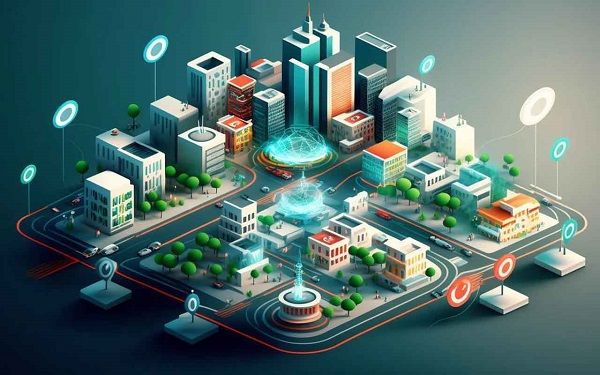
Navigating the Future: An In-Depth Review of Smart City Technology
As urban populations continue to grow, the concept of smart cities has emerged as a beacon of sustainable and efficient urban development. This article delves into the intricacies of smart city technology, its origins, global implementations, advantages, challenges, and its potential future impact on urban living.
The Concept of Smart City Technology
Smart city technology represents a convergence of information and communication technologies (ICT) to enhance the quality and performance of urban services. This concept is rooted in the idea of using data and technology to make cities more responsive, efficient, and sustainable. From traffic management to energy conservation, smart city solutions aim to optimize city functions, reduce costs, and improve citizens’ quality of life.
At its core, smart city technology leverages IoT (Internet of Things) devices, sensors, and analytics to gather and analyze data, providing insights that drive intelligent urban management decisions.
Origins of the Smart City Idea
The inception of smart cities is a response to the challenges posed by urbanization. Rapid population growth and increasing urban density have necessitated more efficient city management. The idea was to harness technology to address these challenges, leading to the evolution of smart cities.
Technological advancements, especially in IoT and big data analytics, have been the backbone of this evolution. These technologies enabled the collection and analysis of vast amounts of data, facilitating informed decision-making for urban development.
Global Implementations of Smart City Technologies
Smart city technology has been implemented in various parts of the world, each with its unique approach. Cities like Singapore, Barcelona, and Amsterdam have emerged as front-runners, employing technologies like smart traffic lights, energy-efficient buildings, and digitalized public services.
In Singapore, for instance, sensors and cameras help manage traffic flow and monitor environmental conditions, while in Barcelona, smart lighting and waste management systems have been key initiatives.
Advantages of Smart City Technology
One of the primary advantages of smart city technology is its ability to make urban areas more livable and sustainable. By optimizing resource usage, cities can reduce their environmental footprint. Enhanced data-driven governance leads to better urban planning and service delivery, improving citizens’ quality of life.
Additionally, smart technology fosters economic growth by attracting investments and creating new job opportunities in the tech sector.
Challenges and Disadvantages of Smart Cities
Despite its benefits, smart city technology faces significant challenges. Privacy and security concerns are paramount, as the reliance on data and connected networks raises the risk of cyberattacks and data breaches. The high cost of implementing and maintaining smart infrastructure can also be a barrier, especially for less affluent cities.
There is also the risk of creating digital divides, where certain segments of the population might be left behind due to lack of access to technology.

Case Study: Success or Failure?
An exemplary case of smart city technology implementation is Amsterdam’s Smart City initiative. The project has achieved notable success in areas like energy efficiency, traffic management, and citizen engagement. However, challenges such as managing the vast amount of data and ensuring equitable access to technology still persist.
This case reflects the broader narrative of smart cities: while they offer significant benefits, realizing their full potential requires navigating complex challenges.
The Future of Smart City Technology
Looking ahead, the future of smart city technology seems promising yet nuanced. The continuous evolution of technology, coupled with increasing environmental and urban challenges, positions smart cities as a crucial element of future urban development.
However, the sustainability of smart cities will depend on addressing current challenges, ensuring inclusive and equitable access to technology, and continuously adapting to the changing needs of urban populations.
